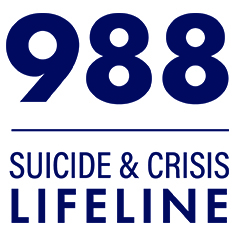Montgomery College strives to create a prepared community with a focus toward preventing and/or reducing the number of suicides and suicide attempts, and seeks to address the need of the College to enhance prevention resources for its counseling staff, faculty, leadership, students, families, and its communities. To inform and guide this initiative, the College will utilize its new Behavioral Intervention Team (BIT) on each campus as well centrally (college-wide) through the BIT Steering Committee. This dual strategy allows for localized support on each of its three campuses while it facilitates institutionalization of the project.
This is a transformational project, and the first time submitting to the Campus Suicide Prevention Program. Traditionally, College counselors are trained primarily to provide academic advising. To increase campus suicide prevention efforts, the College is now poised to propose MC Project Aware, and address two goals relating to: (1) mental health training, and (2) capacity building through enhanced linkages internally and externally. The increased awareness and related activities, informed by research, ensure that these two measurable goals are met. The transformation will be sustained over time through BIT.
Montgomery College is a public, open admissions community college in Maryland within the Washington, DC Greater Metropolitan Area, with campuses in Germantown, Rockville, and Takoma Park/Silver Spring, all serving key geographic locations. The college serves more than 60,000 diverse students a year through both credit and noncredit programs in more than 100 areas of study. More than 170 countries are represented on the three campuses. The number of foreign-born residents accounts for a remarkable 30% of the county’s population. More than 500 veterans attend classes. Student organizations and clubs on campus include veteran and Lesbian Gay Bisexual Transgender (LGBT) populations, as well as counseling and student development services. The entire College, both facilities and grounds, is tobacco-free. The College’s mission speaks to the heart of changing lives for the better.
